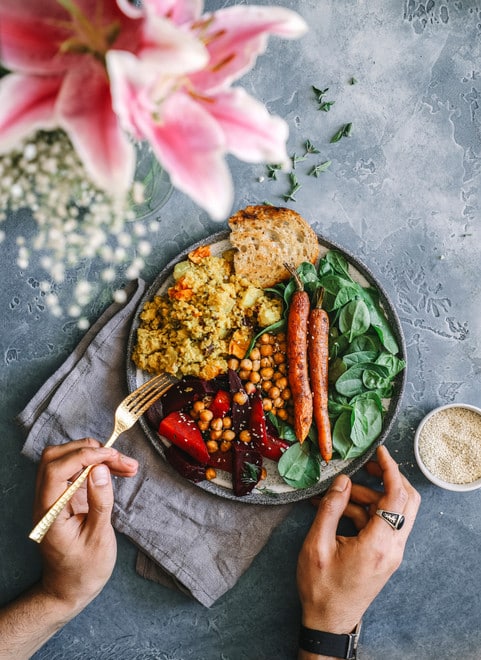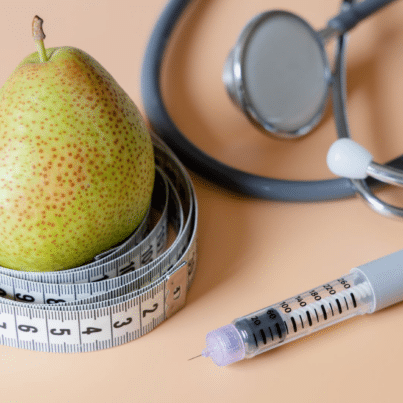The only certification program you need to become an expert in plant-based nutrition and help others thrive with the power of plants.
This certification program features the latest scientific research on plant-based nutrition to provide you with deep knowledge of this dietary pattern. It takes a way of eating that is often misunderstood, over-complicated, and confusing and makes it digestible.
Becoming a CPBNS will equip you to better serve your existing clients, future clients, yourself, and/or your loved ones — and help you become a leader in the plant-based health and wellness space.

This program is for you if:
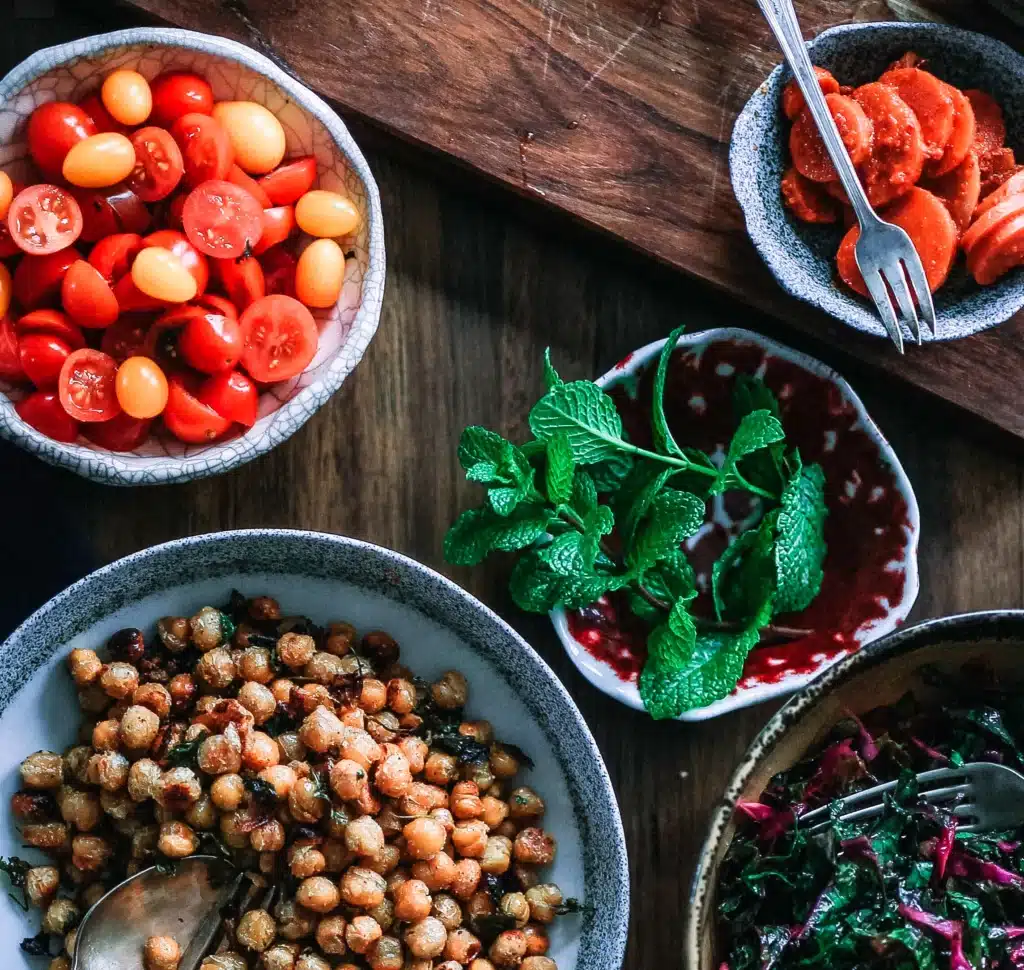
- You are passionate about health and wellness and want to gain more understanding of plant-based nutrition
- You are looking to carve out a specialty or niche for your business so you can have authority in the space
- You want to be able to support your loved ones or existing clients who are trying to eat more plants
- You have recognized the benefits of a plant-based way of eating and want to be able to confidently apply it to your own life
What is Plant-Based Nutrition?
Plant-based nutrition is the study of a diet that consists mostly of foods from plants. A plant-based diet primarily consists of fruits, vegetables, nuts, seeds, oils, whole grains, legumes, and beans.
A few of the many health benefits of a plant-based diet include:
- Lower risk of chronic disease
- Regulated blood pressure and heart rate
- Regulated cholesterol and triglyceride levels
- More balanced gut microbiota
- Greater blood glucose management
Another benefit of plant-based nutrition is your impact on the environment. Reducing your consumption of animal products reduces your carbon footprint.
In fact, if Americans replaced 50 percent of the animal products they eat with plant-based foods by the year 2030, the country’s diet-related greenhouse gas emissions would decrease by 35 percent.1
With all these benefits, it’s no surprise that plant-based nutrition is growing in popularity. Today, almost 40 percent of Americans try to eat more plant-based foods.
This shift means there is a great need for leaders to emerge and support people as they transition to or maintain a plant-based lifestyle.
That’s where Certified Plant-Based Nutrition Specialists come in.
What Does a Certified
Plant-Based Nutrition Specialist Do?
Certified Plant-Based Nutrition Specialists know how to use plant-based nutrition to support each person’s unique needs.
Plant-based eating is an often misunderstood way of eating. A CPBNS brings clarity and confidence to their clients.
Becoming AFPA-certified sets you apart in a rapidly growing industry. The Certified Plant-Based Nutrition Specialist program equips you with the knowledge to coach private clients, consult with companies, work within corporations – and so much more.
From hosting podcasts to creating coaching group programs, there is no limit to what career opportunities you can explore.

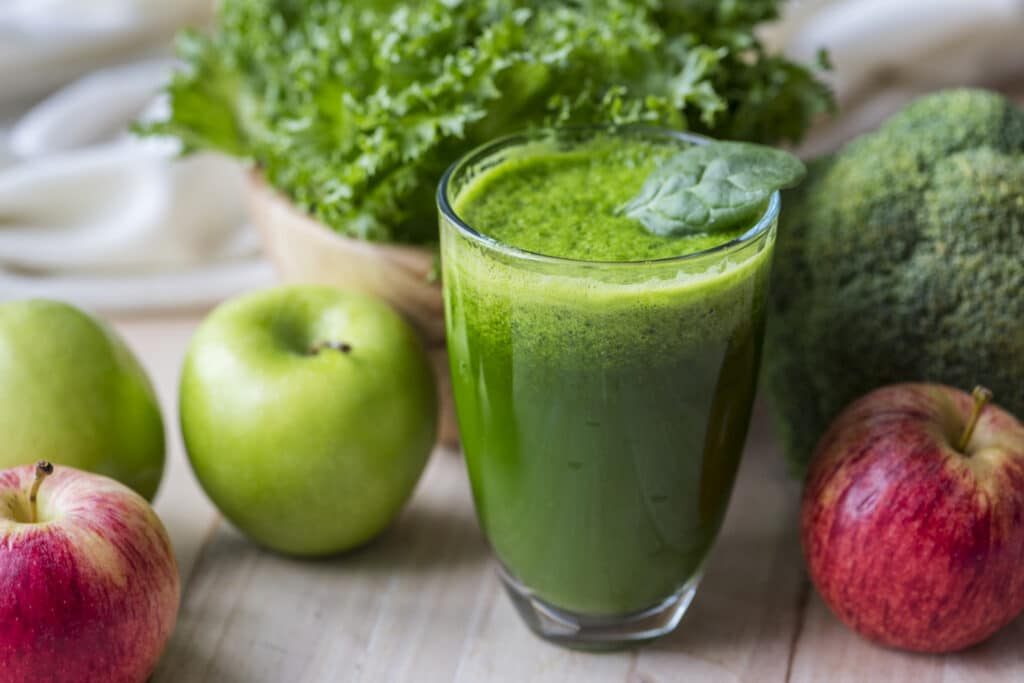
Imagine how it would feel to:
- Be excited to go to work every day fulfilling your life’s purpose
- Have more control of your time and energy
- Make an impact while traveling or spending more time with your family
- Empower your community and loved ones with plant-based nutrition knowledge
All this is possible when you become a Certified Plant-Based Nutrition Specialist. We’re here to help you get there.
Explore the Course Curriculum
Unit 1: Introduction to Plant-Based Nutrition Science Answer
- Primary plant-based dietary patterns
- The health benefits of plant-based dietary patterns
- Interpreting the health effects of plant-based eating
Unit 2: Plant-Based Dietary Patterns Answer
- Whole-food, plant-based diet
- Vegan
- Vegetarian
- Pescatarian
- Flexitarian/ reducitarian
- Lacto/ovo vegetarian
- Ovo-vegetarian
Unit 3: Plant-Based Diets in Health & Disease Answer
- Cardiovascular disease
- Bone health
- Hypertension
- Diabetes
- Cancer
- Autoimmune diseases
- Weight loss and management
- Gut health and microbiome
- Respiratory diseases
- Brain health
Unit 4: Plant-Based Diets Across the Lifespan Answer
- Infants
- Children and adolescents
- Early adulthood
- Middle adulthood
- Late adulthood
- Pregnancy
- Lactation
- Menopause
Unit 5: Plant-Based Functional Foods & Supplements Answer
- Bioactive compounds
- Phytonutrients
- Micronutrients
- Herbs and spices
- Supplementation
Unit 6: Plant-Based Sports Nutrition Answer
- Nutritional considerations and precautions for plant-based athletes
- Differences in nutrient and energy needs between athletes and non-athletes
- Factors that influence dietary decisions and health behaviors among athletes
Unit 7: Special Topics in Plant-Based Nutrition Answer
- Impact on climate and environmental health
- Eating disorders and disordered eating
- Cultural and spiritual practices
- Psychology of plant-based diets
- Protein needs
- Food access and nutrition policy
- Hormones and pesticides
Unit 8: Plant-Based Nutrition Coaching & Education Answer
- Tips and strategies for coaching and counseling plant-based diets, recommending foods, and choosing recipes
The Signature AFPA Framework
Comprehensive Training
The Certified Plant-Based Nutrition Specialist (CPBNS) program delivers the most up-to-date, relevant information on plant-based nutrition.
Within the program you get:
- Eight comprehensive, step-by-step modules that walk you through the science-based principles of plant-based nutrition.
- Online video lectures.
- Digital and/or physical textbooks.
- Case studies, articles, slides, videos, and discussion forums to deepen your knowledge.
Actionable Career Support
If you’re interested in starting or expanding your career as a Certified Plant-Based Nutrition Specialist, this program goes a step further by providing resources and support to help you create a fulfilling career using your certification, including webinars and trainings, articles and research, and bonus email courses.
Members-Only AFPA Insider Community
After you graduate, get exclusive access to the members-only Facebook group where you can connect with, network with, and get support from other AFPA graduates.
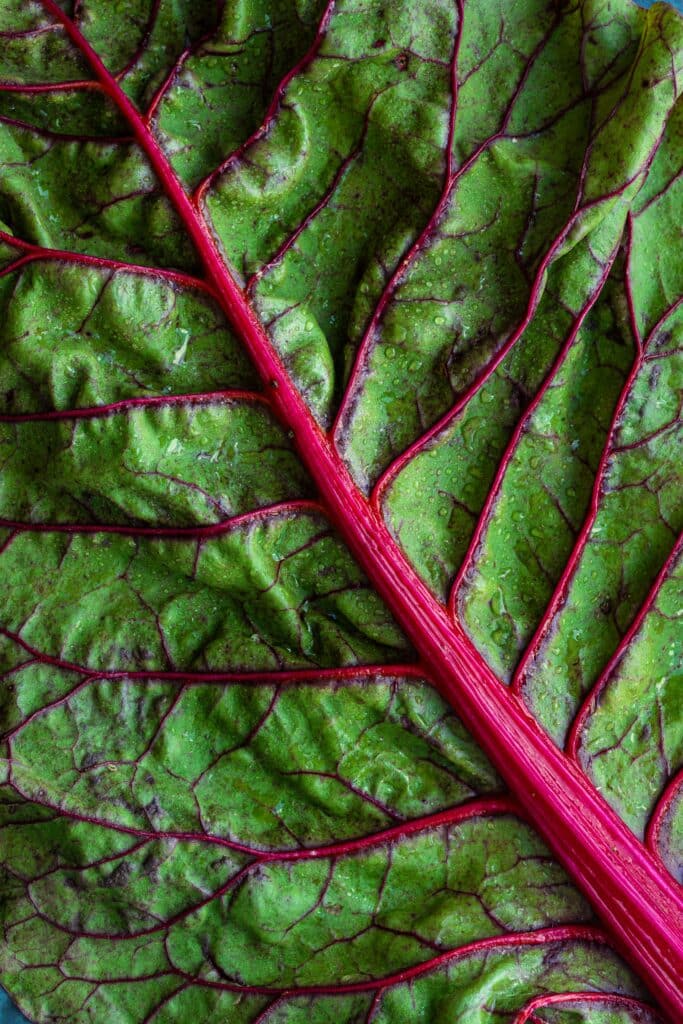
Why Choose AFPA?
At AFPA, we’re on a mission to make a global impact on health and wellness. To do so, we’re committed to providing quality certifications in health, fitness, and nutrition coaching – so that graduates like you are prepared with the knowledge and skills that set you above.
Credibility
An AFPA certification backs you with industry-leading credibility that leads to more clients, higher rates, and a greater
Flexibility
Our courses are online and self-paced, so you can fit the training into your schedule. Move through at your own pace in 6 months or less.*
Affordability
We want our programs to be as accessible as possible. We offer flexible payment plans to fit your budget.
Community
Become a part of a community of health, nutrition, and fitness professionals. We’re leading a movement toward global health and wellness.
Whole Person Approach
We understand that each aspect of your health is interconnected. We equip you to address an individual as a whole – from health and nutrition to lifestyle and mindset.
Career Support
We’re here for you even after you become a CPBNS. We offer tools and support to help you create a career path that fits you and your needs.
130000+ students certified
30+ years of excellence in education
30+ certification programs offered
98.9% student satisfaction
You’ve got the passion. We’ve got the industry-leading credibility.
Lets’s make good things happen.
Let’s Recap.
Here’s everything you get in the Certified Plant-Based Nutrition Specialist program:

8 Step-By-Step Modules. The CPBNS program covers eight sections of plant-based nutrition information, including scientific principles, the role of nutrition in sickness, how to develop personalized nutrition plans across age groups, and much more.
Comprehensive Materials. The certification program includes online video lectures and digital and/or physical textbooks.
Exclusive AFPA Insider Pass. Access to a growing community of health, fitness, and nutrition professionals. Inside the community, you can network, ask questions, and connect with other grads.
Applicable Career Resources. Get the tools and support you need to build a career as a Certified Plant-Based Nutrition Specialist. Blogs, webinars, and exclusive email courses are just a few of the resources we offer.
Enroll today and start creating positive change with the power of plants.
Let Customers Speak for Us
FAQ
What are the requirements to enroll in this program? Answer
You must be at least eighteen years old and have a solid understanding of the English language to enroll in this program.
We also recommend (but do not require) that you:
- Hold at least one current certification in a health, wellness, nutrition, or fitness discipline (OR) have an undergraduate degree in a health or science discipline
- Have knowledge of health and wellness coaching strategies and practices
What is plant-based nutrition? And does this program curriculum support veganism or vegetarianism? Answer
“Plant-based” refers to a dietary pattern that primarily consists of plants (i.e. fruits, vegetables, seeds, nuts, legumes, whole grains, etc.). While the program does cover different types of vegetarian and vegan diets, it also considers diets that include meat and other animal products.
How does this certification program differ from the AFPA Holistic Nutritionist Certification program? Answer
The Certified Plant-Based Nutrition Specialist program and the AFPA Holistic Nutritionist Certification program both offer a credible, comprehensive, whole-person approach to nutrition.
The major difference is that the Certified Plant-Based Nutrition Specialist program takes a deeper dive into plant-based diets, so it is best for those who want to specialize in plant-based nutrition. It prepares you to better support those who are specifically looking to transition to or maintain a plant-based diet. It will also allow you to gain authority and serve as a leader in the plant-based space.
How long does this program take to complete? Answer
The program is designed to provide you with flexibility and ample time to progress at a pace that is comfortable to you. It is self-directed, self-study, and may be completed in six months or less. If you require more time, you can request a six-month extension for an additional extension fee of $75.
How do quizzes and exams work? Answer
All quizzes, exams, and assignments are online, open book, and can be completed when you’re ready.
You must score at least 85% on all quizzes and exams to pass. You may take a quiz as many times as you need to pass. You must pass the final exam on the first attempt. If you don’t, you can request a retest for a fee of $75.
Are textbooks included in my enrollment fee? Answer
Yes! Your enrollment fee includes lifetime access to all of the digital textbooks you will need to complete this course.
Digital textbooks allow us to offer the most up-to-date curriculum, give you immediate access to the materials, plus offer portability across devices.
We understand that learning styles and preferences vary. If you are interested in purchasing physical textbooks in addition to the digital textbooks that are included in your course enrollment fee, you can find a complete book list within your online student learning platform.
Do I need to complete continuing education to maintain my certification? Answer
Yes, you will need to complete at least 16 continuing education credits (CECs) every two years to maintain your certification. You can learn more about renewing your certification here.
Can I earn continuing education credits for completing this certification program? Answer
Yes! A newly acquired AFPA certification has a value of 16 continuing education credits (CECs) that count toward the renewal requirements of an existing AFPA certification. To qualify for CECs, you must successfully complete the certification program.
How much does it cost to become a Certified Plant Based Specialist? Answer
The Plant-Based Nutrition Specialist Certification costs $749.00. Pay as little as $63/month and 0% APR financing with payment plans through Affirm.
Are payment plans available? Answer
Select Affirm at checkout to split your purchase into monthly payments starting at 0% APR with no hidden fees.
Pick the loan that fits your budget and make payments over three, six, or 12 months. Our payment plans offer instant approval and are safe and secure.
What does a Plant-Based Nutrition Specialist do? Answer
A Plant-Based Nutrition Specialist possesses specialized expertise in utilizing plant-based nutrition strategies tailored to meet the individualized dietary needs of their clients. These professionals play a vital role in demystifying the concept of plant-based eating, instilling clarity and confidence in their clients’ dietary choices.
Plant-based nutrition, although gaining popularity, can often be subject to misconceptions and uncertainties. A Plant-Based Nutrition Specialist bridges this knowledge gap by providing comprehensive guidance and evidence-based insights, allowing clients to make informed decisions about their dietary habits.
Earning certification from a reputable organization like AFPA not only signifies a significant achievement but also sets you apart in an industry that is experiencing rapid growth and transformation. The Plant-Based Nutrition Specialist program equips individuals with the knowledge and skills required to serve diverse clientele effectively. These professionals are empowered to coach private clients, collaborate with companies to enhance nutrition offerings, and contribute to corporate wellness initiatives, among other valuable roles.
The versatility of this certification extends beyond traditional boundaries, offering an array of career opportunities limited only by one’s imagination and aspirations. From hosting educational podcasts that reach wide audiences to designing and leading coaching group programs, the possibilities are boundless. These specialists have the capacity to impact individuals, communities, and organizations by promoting plant-based nutrition as a means to achieve better health, well-being, and sustainable dietary choices. The multifaceted nature of this role allows certified individuals to explore diverse career pathways while positively influencing the way people perceive and embrace plant-based nutrition in their lives.
What are the basics of plant-based nutrition? Answer
Plant-based nutrition forms the cornerstone of a dietary pattern that prioritizes whole, minimally processed plant foods as the primary source of nourishment. This approach is rooted in the belief that a diet rich in plant-derived foods offers numerous health benefits, while also aligning with ethical and environmental values. The basics of plant-based nutrition encompass a set of guiding principles that shape this dietary lifestyle:
- Emphasis on Plants: At the heart of plant-based nutrition is a profound emphasis on plant-derived foods. Fruits, vegetables, legumes, whole grains, nuts, seeds, and plant-based alternatives to animal products are the foundation of this dietary pattern. These foods provide a broad spectrum of essential nutrients, including vitamins, minerals, antioxidants, fiber, and phytonutrients, all of which are vital for maintaining overall health and well-being.
- Diverse Food Choices: A key tenet of plant-based nutrition is diversity. A plant-based diet encourages the consumption of a wide range of plant foods, each with its unique set of health benefits and flavors. By incorporating an array of colorful fruits and vegetables, individuals can ensure that they receive a diverse array of nutrients, supporting a balanced and well-rounded diet.
- Whole Foods: Choosing whole, minimally processed foods ensures that individuals receive essential nutrients in their most natural, unadulterated form, promoting health and vitality.
Why would someone want to go plant-based? Answer
Individuals are increasingly drawn to the idea of adopting a plant-based diet for a multitude of compelling reasons. Firstly, health considerations play a significant role. Plant-based diets have been linked to a reduced risk of chronic diseases like heart disease, diabetes, and certain types of cancer. They can promote weight management, lower cholesterol levels, and provide an array of essential vitamins, minerals, and antioxidants crucial for overall well-being.
Another driving force is environmental concern. Many are deeply aware of the environmental impact of animal agriculture, including its contribution to greenhouse gas emissions and deforestation. Choosing plant-based foods is seen as an eco-friendly option that supports sustainability, conservation of resources, and the preservation of our planet.
Ethical considerations related to animal welfare represent a profound motivation. Those who embrace a plant-based diet often do so to minimize their involvement in practices they find morally objectionable, such as factory farming. By choosing plant-based alternatives, they can reduce animal suffering and align their dietary choices with their ethical values.
Moreover, plant-based eating accommodates individuals with allergies or sensitivities to animal products and those with lactose intolerance. It offers a healthful solution to alleviate digestive discomfort and adverse reactions to certain foods.
Ultimately, personal preference plays a substantial role. Many individuals genuinely relish the taste and textures of plant-based foods, finding them not only nourishing but also deeply satisfying. The motivation to go plant-based is as diverse as the individuals themselves, with each person considering their own values, dietary needs, and health objectives.
Is plant-based actually healthy? Answer
Plant-based diets, when well-balanced and thoughtfully planned, are associated with a myriad of health benefits. Extensive research indicates that adopting a plant-based dietary pattern can contribute to overall well-being and reduce the risk of chronic diseases. These diets are often rich in dietary fiber, antioxidants, vitamins, and minerals, all of which play a vital role in promoting cardiovascular health and reducing inflammation in the body.
Plant-based eating can also support digestive health, thanks to the high fiber content in fruits, vegetables, legumes, and whole grains. Fiber aids in regular bowel movements and promotes a healthy gut microbiome.
It’s important to note that the healthfulness of a plant-based diet hinges on careful planning. Ensuring a well-rounded intake of essential nutrients, including protein, vitamin B12, iron, calcium, and omega-3 fatty acids, is crucial. Individuals should also monitor their dietary choices to avoid excessive intake of ultra-processed plant-based foods, which may negate some of the health benefits.
Plant-based diets have the potential to promote health and prevent disease when approached mindfully and comprehensively. They offer a multitude of benefits for cardiovascular health, weight management, blood sugar control, and overall well-being, provided that individuals make informed dietary choices and maintain a balanced, nutrient-rich eating pattern.
Does plant-based eating impact inflammation in the body? Answer
Plant-based eating is known for its potential to have a positive impact on inflammation within the body. Inflammation is a complex biological response that plays a role in both acute and chronic health conditions. Adopting a plant-based diet can help manage and reduce inflammation, leading to improved overall health and well-being.
One of the primary reasons for the anti-inflammatory effects of plant-based eating lies in its rich array of antioxidants and phytonutrients. Fruits, vegetables, legumes, whole grains, nuts, and seeds—all staples of plant-based diets—are packed with these beneficial compounds. Antioxidants combat free radicals, which can trigger inflammation and oxidative stress in the body.
It’s important to note that not all plant-based diets are equal in terms of their anti-inflammatory effects. A diet high in ultra-processed plant-based foods may not confer the same benefits as a diet rich in whole plant foods.
What is the downside of a plant-based diet? Answer
While plant-based diets offer numerous health and environmental benefits, it’s important to acknowledge potential downsides or challenges that individuals may encounter. One concern is the risk of nutrient deficiencies, as some essential nutrients are less abundant in plant-based foods. Nutrients like vitamin B12, iron, calcium, iodine, and omega-3 fatty acids can be less readily available in a plant-based diet. To address this, individuals should carefully plan their diets or consider supplements to ensure they meet their nutrient needs.
Protein quality is another consideration. While plant-based diets offer various protein sources, the quality of plant-based protein can differ from animal sources in terms of amino acid profiles. Combining different plant-based protein sources can help ensure individuals receive a complete spectrum of amino acids.
Digestive issues can arise, especially when transitioning to a plant-based diet, due to the increased fiber intake. Gradual dietary changes and sufficient water consumption can help alleviate these issues.
In some regions or circumstances, limited access to a wide variety of plant-based foods can make it challenging to maintain a balanced diet. Social and cultural considerations can also pose challenges, as plant-based eating may differ from the dietary norms of one’s community or social circles.
Planning well-balanced plant-based meals may require more effort and knowledge, particularly for those new to this dietary approach. Additionally, some individuals may have allergies or sensitivities to specific plant-based foods, such as nuts, soy, or gluten, which can limit food choices.
Lastly, some people may need time to adjust to the taste and texture of plant-based foods, particularly if they were accustomed to animal products. Addressing these potential downsides involves careful planning, awareness of nutrient needs, and a willingness to adapt and learn.
Can plant-based eating help with sports and recovery? Answer
Plant-based eating holds significant promise in enhancing sports performance and aiding in post-exercise recovery. Athletes and active individuals can benefit from adopting plant-based diets.
Plant-based diets are rich in essential nutrients, including vitamins, minerals, antioxidants, and phytonutrients, which play pivotal roles in overall health and well-being. These nutrients can bolster recovery processes, helping athletes bounce back after intense physical activity.
Plant-based diets are also renowned for their anti-inflammatory properties. Many plant foods contain compounds that combat inflammation, reducing the likelihood of exercise-induced inflammation. This reduction in inflammation can lead to faster recovery times and less muscle soreness.
To optimize sports performance and recovery on a plant-based diet, it’s important for athletes to pay attention to specific nutrients, including protein, iron, calcium, and vitamin B12. Consulting with a plant-based nutrition specialist well-versed in plant-based nutrition can provide tailored guidance to meet individual dietary needs and achieve peak performance.
Graduates of both the AFPA Plant-Based Nutrition Specialist program and the AFPA Sports Nutritionist Certification program learn how to support plant-based athletes.
Become a plant-based expert and help others discover how this lifestyle can lead to vibrant health and well-being.
Payment Plans Available Starting at 0% APR
Choose from 3, 6, or 12 months. Instant approval. Safe and secure.

